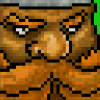How do you choose the right people for your next projects? In real life situations, you don't get a talent pool that's ready to serve you in your next world-conquering project. Your money is limited, and your time is even more so. Let's talk about who are the most likely candidates of your next startup project:
- Friends. Friends are good. You hang out with them, you had fun with them. Friends also come in many different flavors and skills, and some of whom are not particularly useful for your project. There will be a certain percentage of them who might be useful. You are in the tech industry, and maybe a handful of your friends are also in the tech industry. Naturally, your conversations with them clicks more than with the chick you tried to pick up at a bar last weekend. Does that mean that you and your friends can immediately start something big? Unless all of you operate in the same wavelength for at least 6 months, it's difficult to encourage your friends to start a project. Your friends have different ideas. Your friends have different opinions. They would have different priorities.
- Coworkers. You are working with great people with talented skills. It's naturally easy for you to stir something up at the workplace during those lunch and coffee breaks. You talked about how to improve the company's existing broken procedures. The conversations would later evolve into "wouldn't it be great if.." topics. However, the same situations with friends apply here with coworkers. Your coworkers must also have the same vision as you. Though it's a bit easier to team up with coworkers, sometimes the stress and the amount of work at work can kill your side projects fast.
- Family. Family members tend to work on the same fields, and your visions tend to be similar because your neurons are wired pretty much the same layout. They also tend to have the most arguments among each other. Family-owned businesses can be successful, but they can also plunge into the tar pit far faster than any other teams, thanks to the argument last night about who gets to keep Fluffy the dog.
- Strangers. Don't even try unless you are ready to pay them money.
This does not mean that it's impossible to form a good team from the groups above. It's still possible if you find the right people.
Let's just say that you have found some team members. You talked about some ideas with them. Your ideas converge like a salad bowl. It has a great momentum, but not for long. You notice that one guy in your team is "The Idea Guy". He talked about his great ideas, and how it's going to make your project great. He spent 70% of the time explaining his ideas, and the other 30% merging other team members' ideas to his own, which means that he spent 0% on the actual project itself.
The Idea Guy tend to be skill-less. That's why he's The Idea Guy. Remember the 1% inspiration 99% perspiration quote by Edison? It applies here like a cookie cutter. Creating new products requires 99% perspiration, and if one of your team member cannot contribute even 10% of that perspiration, don't count him/her in.




